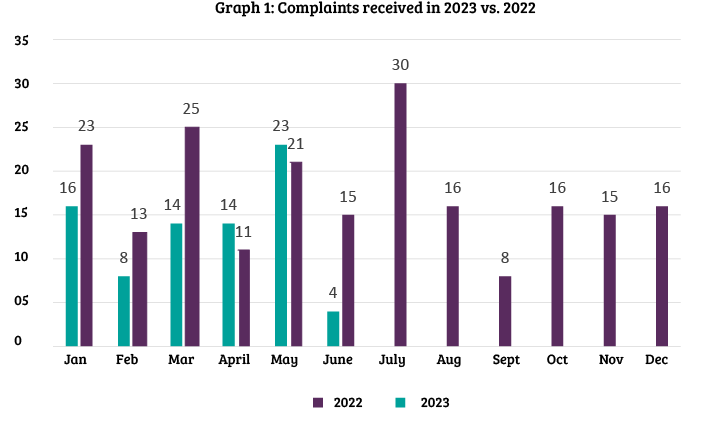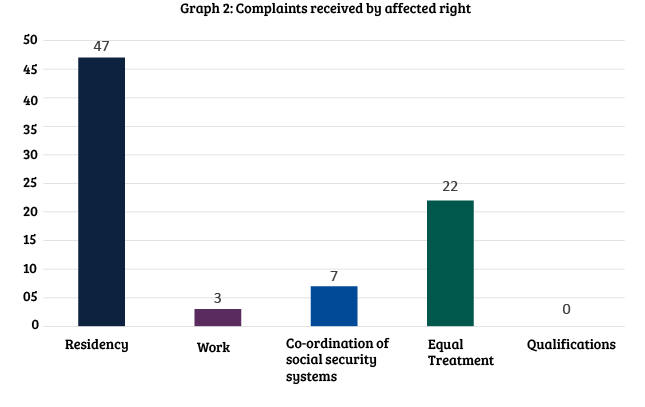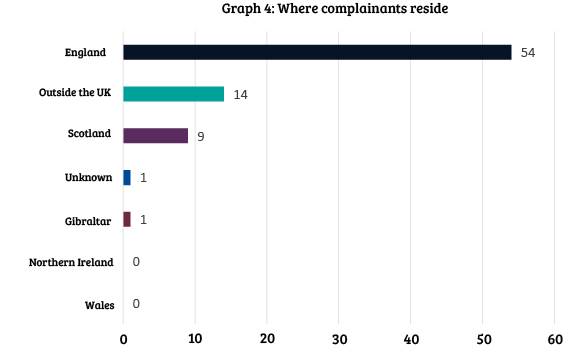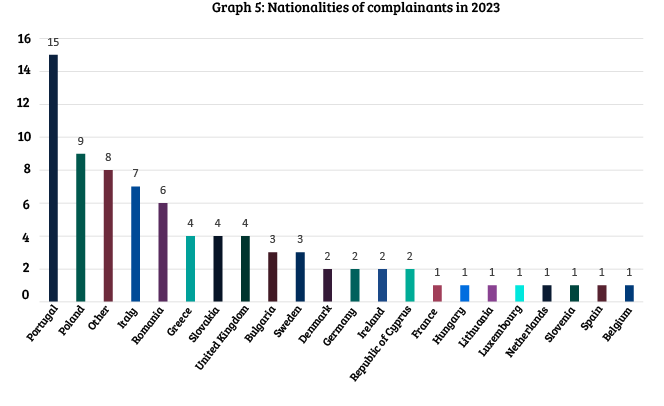The IMA received 79 complaints from 1 January to 30 June 2023. We received the most complaints in May. This is slightly lower than the volume of complaints received in 2022.


Graph 2 (above) shows how many complaints have been received in relation to each right.
The largest group of complaints received relate to the right to reside, followed by equal treatment. We received no complaints regarding qualifications.
Graph 2 (above) shows how many complaints have been received in relation to each right.
The largest group of complaints received relate to the right to reside, followed by equal treatment. We received no complaints regarding qualifications.
Residency
The right to reside includes the right to enter and exit the UK.
The complaints are mainly connected in some way to the UK Government’s EU Settlement Scheme (EUSS), run by the Home Office.
The issues raised in these types of complaints include:
Citizens experiencing long wait times for their EUSS applications, beyond estimated application processing times advised by the Home Office.
Citizens experiencing long wait times for their EUSS Family Permit applications.
Lengthy EUSS administrative reviews and an inability by applicants to obtain updated information as the review progresses.
Work
The right to work, including self-employed work. It also applies to frontier workers; citizens who are employed or self-employed in the UK but live elsewhere.
The issues raised in these types of complaints include ongoing technical issues affecting the View and Prove service which inhibit citizens’ ability to access their proof of status.
Qualifications
The right for qualifications which have already been recognised before 31 December 2020 (or were in the process of being recognised at that time), to continue to be recognised in the UK.
We received no complaints in 2023 relating to this right.
Social Security
Individuals who have lived in both the UK and the EU before the end of the transition period can continue to access pensions, benefits, and other forms of social security.
The issues raised in these complaints include difficulties applying for benefits.
Equal Treatment
EU and EEA EFTA citizens and their family members must be treated the same as UK and Gibraltarian citizens when it comes to accessing certain public services and some benefits.
The issues raised in these complaints include citizens experiencing challenges and refusals at UK borders, relating to EUSS status.

Graph 3 (above) demonstrates that most of the complaints reported to the IMA relate to the Home Office, followed jointly by Department for Work and Pensions and UK Border Force

Graph 4 (above) shows where citizens complaining to the IMA in 2023 reside. Most complainants currently reside in England. Those living outside the UK, include complainants who are joining relevant family members already residing in the UK. No complaints were received from citizens residing in Wales or Northern Ireland.

Finally, graph 5 (above) shows the nationalities of those who made complaints to the IMA in between 1 January 2023 and 30 June 2023.
We received complaints from citizens of over 70% of EU countries. There were no complaints from citizens of EEA EFTA countries.
The third largest nationality was those citizens whose nationality was recorded as ‘other’. These citizens are non-EU/EEA EFTA nationals or dual nationals.